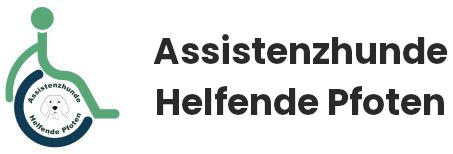How an assistance dog can make life with ME/CFS easier
What is ME/CFS?
ME/CFS stands for myalgic encephalomyelitis/chronic fatigue syndrome.
This is a serious physical illness in which those affected suffer from permanent fatigue, pain, circulatory problems, dizziness and other symptoms.
PEM (post-exertional malaise) is a particularly distressing symptom. The symptoms worsen significantly after physical or mental exertion – often with a time delay.
ME/CFS is often misunderstood or wrongly classified as a mental illness – it is actually a serious physical illness.
Everyday life with ME/CFS
Daily life with ME/CFS is very challenging for many people.
- Many of those affected can no longer work
- Some are dependent on wheelchairs, walkers or personal assistance
- Even small activities such as shopping or showering can lead to a massive break-in
- Many spend a large part of their day in bed or at home
An important strategy in dealing with ME/CFS is pacing – the conscious allocation of available energy in order to avoid relapses.
How an assistance dog can help
A well-trained assistance dog can support people with ME/CFS in everyday life in many different ways – physically, emotionally and cognitively:
🧠 Reminder aid
The dog can be reminded of medication or breaks by conditioned signals.
💡 Early warning system
Some dogs learn to sense changes in their condition (such as impending weakness) and warn you in good time.
👐 Physical support
They help to pick up objects, bring things or provide support when walking.
❤️ Emotional support
A dog comforts, gives closeness and security – especially in phases of isolation or excessive demands.
Challenges when keeping an assistance dog
As helpful as an assistance dog is, it also brings with it new challenges:
💸 Costs
Training an assistance dog is expensive. Many of those affected have to collect donations or apply for funding.
🕊️ Care and attention
A dog needs food, exercise and veterinary care – depending on its state of health, this can be a challenge.
😕 Lack of understanding in everyday life
Unfortunately, many assistance dog teams encounter prejudices – for example when they want to take the dog into a store. Education is particularly important here.
Conclusion: A helper on four paws
An assistance dog can be a real ray of hope for people with ME/CFS – it provides help, structure, security and joie de vivre.
But:
A dog is a living being with its own needs.
Anyone thinking about getting an assistance dog should check carefully whether there is enough support available – e.g. from relatives, care services or the local community.
With the right support, an assistance dog can be a loyal companion – and make life with ME/CFS much easier.
📌 Tip:
You can find more information specifically about assistance dogs for ME/CFS on our topic page: 👉 www.mecfs-assistenzhund.de
